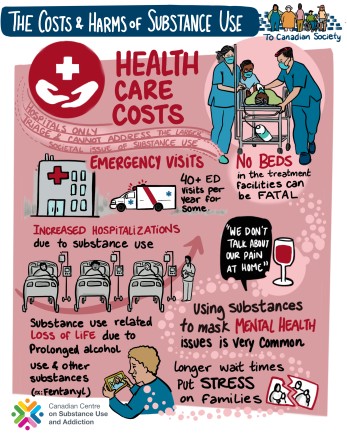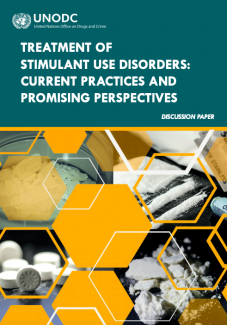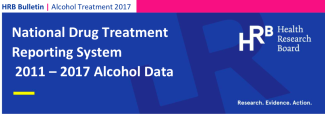
Tìm kiếm

Tobacco Smoking and Mortality in Asia: A Pooled Meta-Analysis
Key Points
Question: How are secular trends of tobacco smoking associated with mortality across countries or regions by birth cohorts in Asia?
Findings: This pooled meta-analysis of 1 002 258 participants in 20 prospective cohort studies...
Effectiveness Bank Additions: Therapy Relationships that Work 2: Elements of the Alliance
Second of four bulletins recapping 16 reviews for the American Psychological Association featuring expert advice and amalgamations of research findings on different aspects of the client-therapist relationship. With the overview of the...
Cross-Cultural Applicability of the 12-Step Model: A Comparison of Narcotics Anonymous in the USA and Iran
Abstract
Objective: Narcotics Anonymous (NA), a nonprofessional 12-step fellowship for people seeking recovery from addiction, reports 27,677 meetings in the USA, where it was founded, but there is limited literature on its adaptability...
Drogodependencia asociado a baja adherencia a la terapia antiretroviral de gran actividad en el Hospital Loayza 2013 -2015
RESUMEN
Objetivo: Conocer si existe asociación entre mala adherencia anual a la Terapia Antiretroviral de Gran Actividad (TARGA) y la dependencia al alcohol y/o drogas a los dos años de tratamiento. Junio 2013 a Junio 2015. Métodos de...
Effectiveness Bank Additions: Therapy Relationships that Work 1: The Alliance
First of four bulletins recapping 16 reviews for the American Psychological Association featuring expert advice and amalgamations of research findings on different aspects of the client-therapist relationship. With the overview of the...
Effectiveness Bank Analysis: Do Interventions to Reduce Alcohol-Related Harms also Reduce Domestic Abuse?
In celebration of International Women’s Day we are highlighting studies throughout the month of March that further our understanding of how sex and gender influence the course of addiction and treatment, with a particular focus on women.
T...
Addiction 101

The Recovery Research Institute have developed a new website that aims to answer the most common questions asked about addiction.
Addiction 101 addresses questions such as:
- What is the prevalence and cause of addiction?
- What does...
Treatment of Stimulant Use Disorders: Current Practices and Promising Perspectives
ADGRL3 (LPHN3) Variants Predict Substance Use Disorder
Abstract
Genetic factors are strongly implicated in the susceptibility to develop externalizing syndromes such as attention-deficit/hyperactivity disorder (ADHD), oppositional defiant disorder, conduct disorder, and substance use disorder...
Effectiveness Bank Analysis: “The Relationship Can Heal”
Impressively wise, unprecedentedly comprehensive, backed by the American Psychological Association, and based on expert assessments and 16 new evidence reviews, the overview featured in this analysis has claims to being the single most...
UNODC Information and Education Material
UNODC has compiled a selection of educational materials and flyers that provide information on drug dependence treatment and care.
The resource has been translated into several languages and covers topics including:
- patient rights and...
New Resource: Time to Act!
Time to Act! outlines pragmatic and concrete actions, following the UN General Assembly Special Session 2016 (UNGASS 2016), for prevention of non-medical use of controlled substances, treatment of drug use disorders, social protection and...
Standards for Opioid Use Disorder Care: An Assessment of Nordic Approaches
Opioid Use disorder is one of the most challenging forms of addiction facing health care systems around the world. The treatment of opioid dependence is important to reduce its health and social consequences and to improve the well-being...
The Link between the Marketing of Opioid Products with Mortality from Opioid-Related Overdoses
Alcohol Treatment in Ireland 2011 to 2017
Effectiveness Bank Analysis: Make Patients Partners in Therapy
Research findings amalgamated for the American Psychological Association show that outcomes of psychosocial treatments are substantially improved when clients and therapists agree on goals and methods and form collaborative relationships...
The Substance Use Intervention Team: A Preliminary Analysis of a Population-level Strategy to Address the Opioid Crisis at an Academic Health Center
Objective: In 2017, an academic health center in Chicago launched the multidisciplinary Substance Use Intervention Team (SUIT) to address opioid misuse across 18 inpatient units and in a new outpatient addiction medicine clinic. This report...
Immigration Status and Substance Use Disorder-Related Mortality in Sweden
Objectives: First-generation immigrants, in many countries, are healthier than their native counterparts. This study examined the association between first- and second-generation immigrant status and alcohol- or drugs other than alcohol...
Prevalence of Undiagnosed PTSD among In-Patients in an SUD Treatment Centre
Post traumatic stress disorder (PTSD) is a common co-ocuring disorder among patients with substance use disorders. Treatment of PTSD improves SUD treatment outcome. Many studies show that a large number of patients with co-morbid PTSD do...
Share the Knowledge: ISSUP members can post in the Knowledge Share – Sign in or become a member







